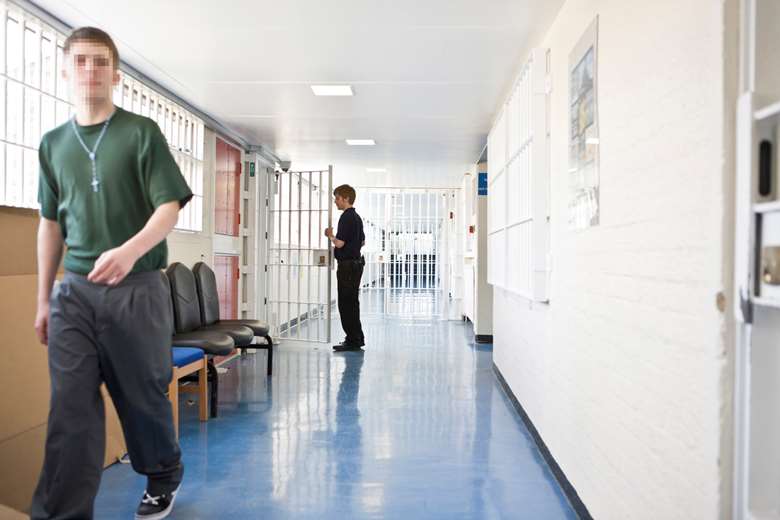Health is just as vital as education for young people in custody
Chris Hanvey
Tuesday, March 18, 2014
Dr Chris Hanvey argues for the adoption of new standards to raise the quality of healthcare for young people in the secure estate.

Education is now to be at the heart of detention. This is the mantra of the Ministry of Justice Transforming Youth Custody green paper, outlining new ideas to improve outcomes for young people in prison. As the Justice Secretary Chris Grayling acknowledges, some youth custody places can cost five times the fees of top private schools, with educational outcomes that are hardly comparable. The logic is simple. With nearly three quarters of young people who leave custody reoffending, education provides a way out to bring greater opportunity and, hopefully, work. So the government wants to see some new models, along the lines of secure colleges where education is not simply an add-on, but core to the purposes of the establishments themselves.
There has been qualified support for the proposals, with the Howard League for Penal Reform questioning whether the usage of custody is always appropriate. No one doubts that education is vital. It is a powerful and life-changing escape from low income and poor prospects. For this reason alone, the initiative should be welcomed. Nonetheless, we should equally not lose sight of the vital role that health and wellbeing plays in the lives of all young people and especially those in custody.
According to Ryan & Tunnard (Healthy Children, Safer Communities, 2012) more than a quarter of young men and a third of young women in secure settings have a long-standing physical complaint, including respiratory problems, musculoskeletal complaints, nervous system complaints, blood-borne viruses and sexually transmitted infections. At the same time, the prevalence of mental health disorders is more than three times greater in young people in secure settings compared with the general population. The most common of these are conduct disorders, anxiety and depression. Prevalence rates of personality disorder, psychosis, attention disorder, post-traumatic stress disorder and self-harm are also high.
Moreover, significant numbers of young people in secure settings are diagnosed with attention deficit hyperactivity disorder, an estimated 50 per cent have learning disabilities and more than half have difficulties with speech, language and communication.
Finally, a very high proportion of young people in secure settings have a history of substance misuse. Before they entered custody, 83 per cent were regular smokers and 60 per cent drank alcohol daily or weekly, 66 per cent reported binge drinking once a week, and more than 80 per cent had used an illegal drug once a month.
While a number of previous reports have pointed out the challenges of adequately meeting the health needs of young people in secure settings, there has been no consistent attempt to establish the healthcare standards necessary to guarantee that these young people receive sustained, consistent and high-quality healthcare. It is because of this gap that the Royal College of Paediatrics and Child Health recently got together with other national bodies to draw up healthcare standards for children and young people in secure settings. The initiative, funded by the Youth Justice Board, aims to give health the same importance that the Ministry of Justice is currently attaching to education.
The study accompanying the standards found that not only does this represent a very needy group, but that multiple physical and mental health needs are often ignored or dealt with unsystematically. Through a series of expert working groups, the report drew together a set of health standards that begins with the initial entry and assessment of young people entering secure accommodation. From substance misuse needs and risks of suicide to chronic health issues and prescribed medication, this assessment provides a comprehensive assessment of a young person's health and wellbeing.
And so the guidance moves through the secure career of young people, examining care planning, the necessity for universal health services - both in terms of physical health care and mental health and neuro-disabilities. It moves on to deal with specific areas such as substance misuse and, finally, to ensure there is a smooth transition of their healthcare hopefully back into the community, but sometimes on to adult justice services. It advocates a multi-agency approach that stresses the importance of clear planning and monitoring and additional training for those working with young people in secure settings.
Endorsed by all of the UK's children's commissioners, the report stresses the responsibility of all those working in or with the youth justice system to protect the physical, mental and emotional health of young people in secure settings. The hope is that this set of standards will be universally accepted across the secure estate.
Nothing should detract from the Ministry of Justice's commitment to improve education for those in secure settings. What is now necessary is to ensure that this takes place in tandem with improving young people's health when the new secure colleges are developed.
Dr Chris Hanvey is chief executive of the Royal College of Paediatrics and Child Health




